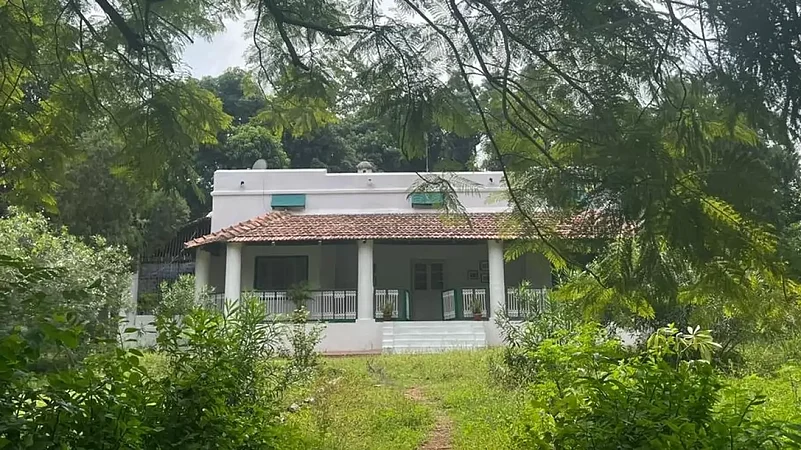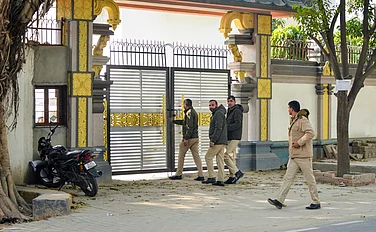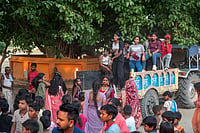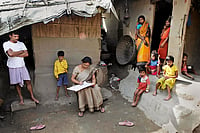McCluskieganj, a quaint town nestled amid mountains and forests and surrounded by tribal villages, located 65 kms from Jharkhand’s capital Ranchi, is set to undergo transformation. Popularly known as ‘Mini London’, and developed into a settlement in 1930s, the town was once home to many Anglo-Indian families. However, a very few Anglo-Indians are living here now and the town is merely a shadow of its former self. But this status is set to change soon.
Efforts are being made to develop McCluskieganj into a popular tourist destination. On July 3, a joint meeting of heads of all the concerned departments of Jharkhand responsible for the conservation of rivers, mountains, and forests is set to be organised. An action plan for the beautification of McCluskieganj is also going to be rolled out.
Manoj Kumar, Secretary, Tourism Department, Government of Jharkhand, says, “To increase tourist activity in McCluskieganj, proper, broad roads will be built for easy commutation to reach mountains and rivers. A few cycle tracks will also be carved out.”
He adds, “Some viewpoints and a big park will be developed. In accordance with the National AYUSH Mission, there are plans to open yoga and massage centres. Shops and a bus stand will come up in a planned manner. To maintain the natural flow of the rivers, a check dam will also be constructed.”
The highlight of the redevelopment plan, however, is to remodel old bungalows of Anglo-Indians and several places of religious significance while retaining and preserving their original structures.
In this regard, Kumar visited McCluskieganj a few days back and a meeting has been scheduled with officials from the forest, tourism, and rural development departments on July 3. Once concrete plans are in place, a team will once again visit the town. Views of those living in McCluskieganj as well as the connoisseurs of the history and culture of the Anglo-Indian town would be taken into consideration, too, informs Kumar.
The Anglo-Indian community has welcomed the government’s decision to redevelop the town, however, it feels that something should be urgently done for the welfare of Anglo-Indians living here for the past three generations.
At present, only 10 families are living in McCluskieganj. Among these is the family of 50-year-old Malcolm Hourigan. He believes that if the government intends to develop McCliskieganj, it should also do something about the Anglo-Indian community as the town was developed as an Anglo-Indian town way back in the 1930s.
“If a place is famous for its mango orchard but if not a single mango is to be found, it’s pointless to beautify the orchard. Nearly 450 Anglo-Indian families lived here once. There was a large-scale migration between 1950 and 1960. When Jharkhand was formed, there were 40 houses. Ten years ago, there were around 20 houses. Now there are around 10 houses left,” informs Hourigan.
He feels if the government does not come up with a plan soon, in the coming years, the entire population will get wiped out. “I would request the government to help Anglo-Indians in Jharkhand to settle in McCluskieganj. We should be provided with all the required facilities so that we can live comfortable lives. I know it is difficult, but effort will have to be made,” he says.
Apart from helping the community settle in McCliskieganj, the government should also help in preserving its identity. Hourigan informs that the Anglo-India cemetery is in very bad shape. “A boundary wall should be made around the cemetery and names and details of our ancestors should be mentioned. It will help the tourists to know more about the community,” he says.
The tourism officers who visited McCluskieganj recently met Deepak Rana, who has been living here for the past 50 years. “We have been waiting for a long time for the government to focus on McCluskieganj. There is a dire need to conserve the natural beauty and heritage of the place. However, the government did not seem interested for all these years,” he says.
However, the recent visit by government officials has made them hopeful. Mentioning the issues that the government should focus on first, Rana says, “The forest area in and around McCliskieganj has reduced in the past few decades. Also, around 50 brick kilns are operational here which are harming the environment and stripping the place of the natural beauty. If the government is able to restore forests and free this place from the encroachment by brick kiln owners, McCliskieganj can still go back to being what it was.”
(Translated by Kaveri Mishra)



























